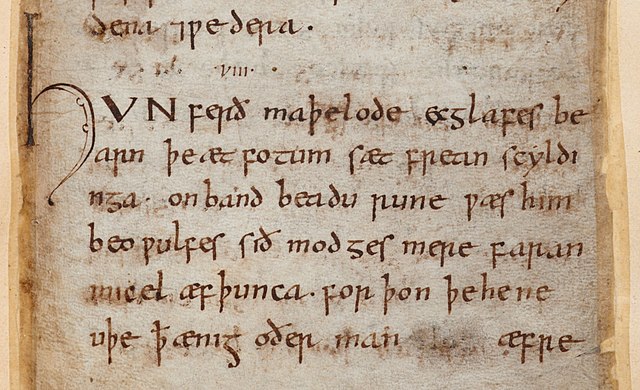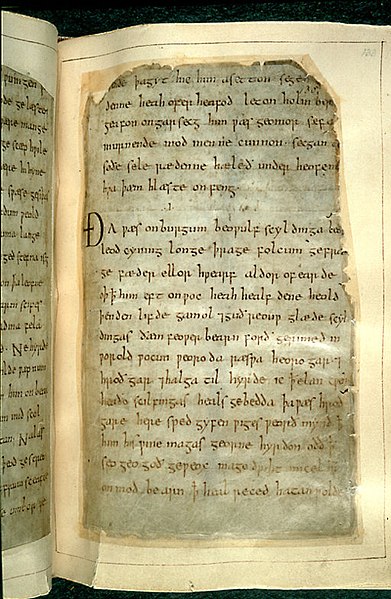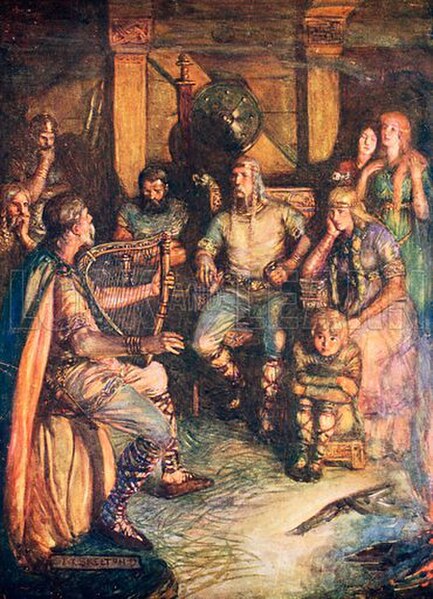In the Old English epic poem Beowulf, Unferth or Hunferth is a thegn of the Danish lord Hrothgar. He appears five times in the poem — four times by the name 'Hunferð' and once by the appellation "the son of Eclafes". The name Unferth does not appear in any Old English manuscript outside of the Nowell Codex, which contains Beowulf, and the meaning of the name is disputed. Several scholarly theories about Unferth have been proposed. Unferth is also the name of a character in the modern novel Grendel by John Gardner, based upon the Beowulf epic.
"Beowulf replies haughtily to Hunferth" (1910) by John Henry F. Bacon
The first mention of Unferth in Beowulf
Beowulf is an Old English epic poem in the tradition of Germanic heroic legend consisting of 3,182 alliterative lines. It is one of the most important and most often translated works of Old English literature. The date of composition is a matter of contention among scholars; the only certain dating is for the manuscript, which was produced between 975 and 1025 AD. Scholars call the anonymous author the "Beowulf poet".
The story is set in pagan Scandinavia in the 6th century. Beowulf, a hero of the Geats, comes to the aid of Hrothgar, the king of the Danes, whose mead hall Heorot has been under attack by the monster Grendel for twelve years. After Beowulf slays him, Grendel's mother takes revenge and is in turn defeated. Victorious, Beowulf goes home to Geatland and becomes king of the Geats. Fifty years later, Beowulf defeats a dragon, but is mortally wounded in the battle. After his death, his attendants cremate his body and erect a barrow on a headland in his memory.

First page of Beowulf in Cotton Vitellius A. xv. Beginning: HWÆT. WE GARDE / na in geardagum, þeodcyninga / þrym gefrunon... (Translation: What! [=Listen!] We of Spear-Da/nes, in days gone by, of kings / the glory have heard...)
Remounted page, British Library Cotton Vitellius A.XV
The traditional view is that Beowulf was composed for performance, chanted by a scop (left) to string accompaniment, but modern scholars have suggested its origin as a piece of written literature borrowed from oral traditions. Illustration by J. R. Skelton, c. 1910





